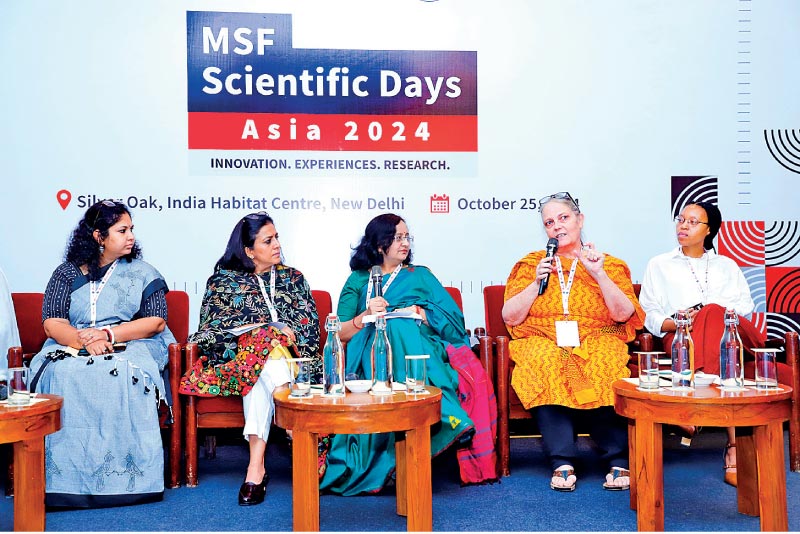Wednesday Feb 25, 2026
Wednesday Feb 25, 2026
Monday, 28 October 2024 02:37 - - {{hitsCtrl.values.hits}}
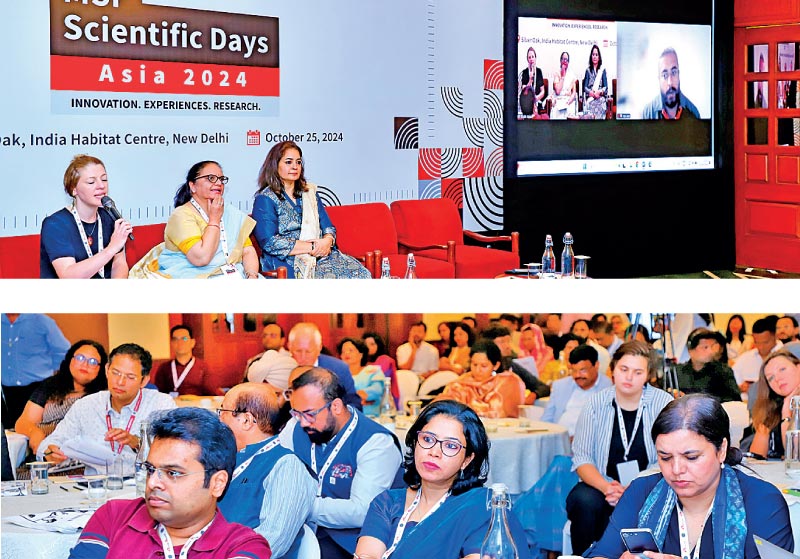
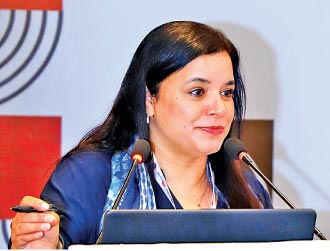 |
| MSF South Asia Executive Director Dr. Farhat Mantoo |
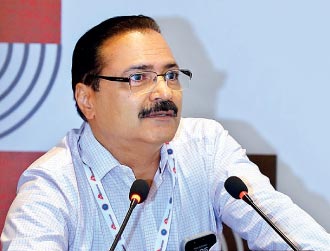 |
| Atal Bihari Vajpayee Institute of Medical Sciences and Dr. Ram Manohar Lohia Hospital Director and Medical Superintendent Dr. Ajay Shukla |
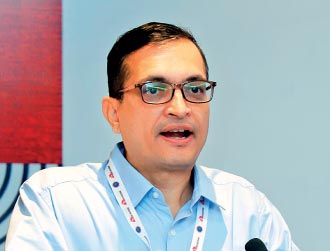 |
| Public Health Practitioner and Researcher Dr. Yogeshwar Kalkonde |
Medecins Sans Frontieres (MSF)/Doctors Without Borders Scientific Days – Asia 2024 held at the India Habitat Centre on 25 October brought together over 200 researchers, academics, and patient representatives dedicated to advancing humanitarian medical innovation and research.
The conference held in collaboration with Atal Bihari Vajpayee Institute of Medical Sciences and Dr. Ram Manohar Lohia (RML) Hospital featured a series of compelling presentations and discussions that highlighted the need for new solutions to health challenges in conflict-affected and resource-limited settings.
This year’s agenda featured compelling discussions across four primary themes: ‘Driving Health Reform’, ‘Antimicrobial Resistance,’ ‘Health Inequities,’ and ‘Human Cost of Violence’. The lineup of speakers featured experts from esteemed institutions and organisations such as FIND, The Union, ReAct Asia Pacific, Indian Council of Medical Research (ICMR), BRAC University (Dhaka, Bangladesh), Sangath India and Jindal School of Public Health and Human Development. Shweta Narayan, Campaign Lead at Global Climate and Health Alliance, India, delivered a special address on a critical intersection – ‘Climate Crisis and Health: Role of the Health Community as Advocates for Climate Change’.
MSF South Asia Executive Director Dr. Farhat Mantoo emphasised the importance of localised interventions in her welcome remarks: “MSF Scientific Days continues to be a space for learning, sharing knowledge and stimulating dialogue. Here in Asia, we are tackling unique challenges, and it is essential that our approaches are informed by local realities. The evidence and science-based solutions we share during this conference will further enable communities to lead the transformation of their health systems while keeping attention and ear to needs of patients.”
The opening remarks were delivered by Atal Bihari Vajpayee Institute of Medical Sciences and Dr. Ram Manohar Lohia (RML) Hospital Director and Medical Superintendent Dr. Ajay Shukla. He said: “Today’s gathering is a testament to our shared commitment to leveraging research and innovation in addressing the pressing health challenges across Asia. By bringing together experts from various fields, we aim to bridge the gap in healthcare access and deliver quality medical services to those who need it the most.”
Sangwari, a not-for-profit organisation working in Chhattisgarh, India, Executive Committee member, Public Health Practitioner and Researcher Dr. Yogeshwar Kalkonde, delivered the keynote address on “Science to serve better: Using research to address health problems of the most marginalised.”
He emphasised: “In a world where the most marginalised often suffer in silence, research must serve as a tool for change. Our focus should be on generating evidence that not only highlights health disparities but also drives action to eliminate them. We must ensure that our scientific endeavours are inclusive and prioritise the needs of communities that have been historically neglected, thereby making health equity a reality for all.”
Throughout the conference, community-led initiatives emerged as a cornerstone for addressing pressing health challenges, with a strong emphasis on innovative solutions. The sessions included personal stories of resilience from TB survivors and community-based care models that demonstrate how grassroots efforts can significantly enhance healthcare delivery. Discussions also focused on antimicrobial resistance (AMR), a growing global health concern. Experts emphasised the urgent need for new antibiotics and improved surveillance systems to combat AMR effectively.
The conference further delved into health inequities, examining barriers faced by vulnerable populations such as the transgender community and women with disabilities. Presentations highlighted the necessity for trans-affirmative care and community engagement to address these issues effectively. In addressing the human cost of violence, the conference provided a platform for discussing the healthcare challenges experienced by women in conflict regions, such as the Indo-Myanmar border and Kashmir.
MSF Scientific Days – Asia 2024 aims to be a stage where non-profits and academic institutions can come together to integrate a range of perspectives from the fields of healthcare and innovation. The conference is an effort towards fostering an inclusive environment where every voice contributes to the collective pursuit of health equity.
